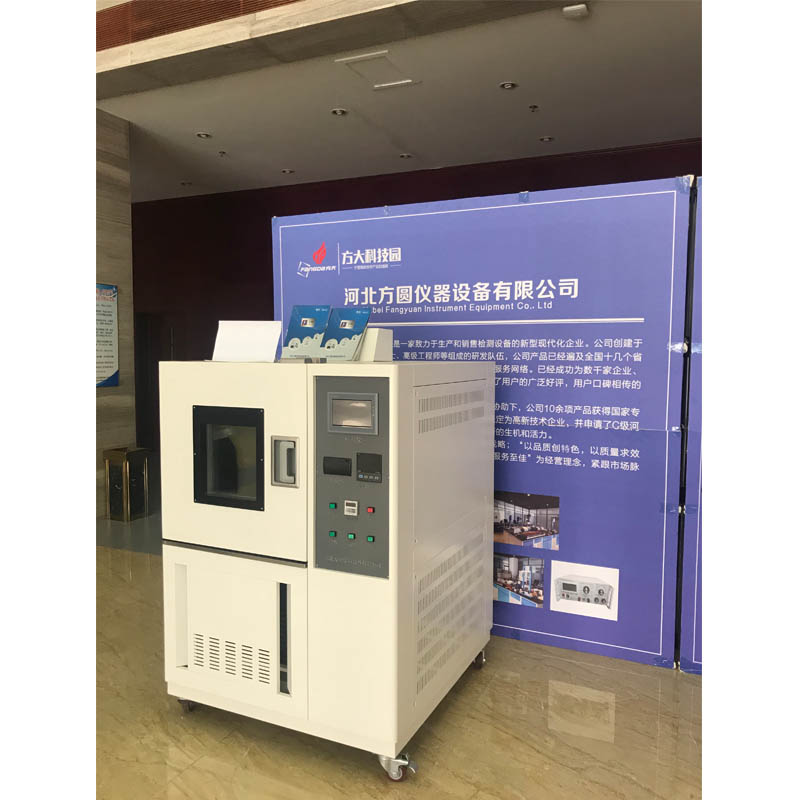Manufacturer of Repeated Bending Testers for Cables and Wires in Quality Assurance Applications
Understanding Cable Repeated Bending Testers A Manufacturer's Insight
In today's fast-paced technological world, the demand for high-quality cables is more crucial than ever. The reliability of cables in various applications, from electronics to heavy machinery, hinges on their ability to withstand repeated bending and flexing over time. This is where the cable repeated bending tester comes into play. As a manufacturer in this specialized field, understanding the significance of these testing machines is vital for ensuring product quality and longevity.
What is a Cable Repeated Bending Tester?
A cable repeated bending tester is a specialized piece of equipment designed to assess the durability and flexibility of cables when subjected to continuous bending cycles. By simulating real-world conditions where cables are bent, twisted, and flexed, this tester helps manufacturers identify potential weaknesses in their products. The primary objective of this testing process is to evaluate how well cables can endure repeated stress without suffering from deterioration or failure.
The Importance of Testing
In industries ranging from telecommunications to automotive, cables are exposed to harsh conditions and constant movement. A failure in a cable can lead to significant downtime, costly repairs, or even safety hazards. Therefore, manufacturers must ensure their cables are capable of withstanding the rigors they will face. The cable repeated bending tester plays a crucial role in this quality control process by providing quantitative data on the cable's performance.
Features of a Quality Cable Repeated Bending Tester
A manufacturer’s choice of a cable repeated bending tester should be guided by several key features
cable repeated bending tester manufacturer

1. Adjustable Bending Radius The ability to customize the bending radius ensures that the tests can accurately reflect real-world usage scenarios. 2. Cycle Count Programmability A good tester allows for programmable cycle counts, enabling the simulation of long-term use without the need for manual intervention. 3. Monitoring Systems Advanced testers are equipped with sensors and monitoring systems that provide real-time feedback on the cable's performance during testing. This data is invaluable for immediately identifying defects or weaknesses.
4. Durability and Build Quality The tester’s construction must be robust to withstand continuous use and provide accurate results consistently.
5. Data Logging and Reporting The ability to log data and generate comprehensive reports allows manufacturers to track cable performance over time, aiding in quality control and improvement.
Real-World Applications
Different industries use cable repeated bending testers to ensure their products meet strict quality standards. For instance, in the automotive industry, cables in vehicles face constant flexing and vibration. Testing ensures these cables remain operational under stressful conditions. In telecommunications, the reliability of signal-carrying cables is paramount, making rigorous testing essential for maintaining service quality.
Conclusion
As a manufacturer of cable repeated bending testers, it is essential to recognize their role in ensuring the reliability and performance of cables in various applications. By investing in high-quality testing equipment, manufacturers can not only enhance product quality but also boost customer satisfaction and trust. As technology continues to advance, the importance of rigorous testing cannot be overstated. Ensuring that cables can endure the challenges of modern usage is a responsibility that manufacturers must take seriously, and cable repeated bending testers are at the forefront of this endeavor.
-
The Role of Tensile Force Testers in Quality Control and Material Science
NewsAug.01,2025
-
Maintenance and Safety Tips for Aging Ovens
NewsAug.01,2025
-
Density Balance in Forensic Science
NewsAug.01,2025
-
Advanced Optical Measurement Technologies
NewsAug.01,2025
-
A Buyer’s Guide to Tensile Test Machines
NewsAug.01,2025
-
Why the Conductor Resistance Constant Temperature Measurement Machine Redefines Precision
NewsJun.20,2025
 Copyright © 2025 Hebei Fangyuan Instrument & Equipment Co.,Ltd. All Rights Reserved. Sitemap | Privacy Policy
Copyright © 2025 Hebei Fangyuan Instrument & Equipment Co.,Ltd. All Rights Reserved. Sitemap | Privacy Policy
